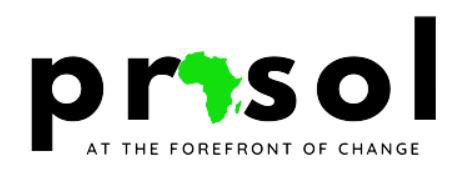Making a great first impression in a job interview is essential to increasing your chances of being hired. Here are 7 tips to help you create a positive impression during your job interview:
1. Dress appropriate
It is important to dress professionally and conservatively for your job interview. Make sure your clothes are clean and ironed, and your shoes are polished.
- Dressing appropriately is an important part of making a good first impression in a job interview. The goal is to look professional and conservative, while also being comfortable in what you are wearing. Here are some tips:
- Research the company culture: Depending on the company culture, the dress code for an interview may be more or less formal. Research the company website or social media pages to get an idea of what employees typically wear to work.
- Choose conservative colours: Stick to neutral colours like black, navy, gray, and white. Avoid bright or flashy colours, and make sure your clothing is clean and pressed.
- Pay attention to details: Make sure your shoes are polished and in good condition. Keep jewelry and accessories to a minimum, and make sure your hair and makeup look neat and professional.
2. Be on time
Punctuality is key to creating a good first impression. Arrive at least 10-15 minutes early for your interview.
- Arriving on time or even a few minutes early for your interview is crucial to making a good first impression. Being late can signal to the interviewer that you are unreliable or don’t value their time. Here are some tips for arriving on time:
- Plan ahead: Map out your route to the interview location, taking into account traffic, parking, and any potential delays.
- Allow extra time: Plan to arrive at least 10-15 minutes early for your interview. This will give you time to compose yourself and review your notes.
3. Research the company
Do some research on the company before your interview. Learn about their products, services, and mission. This will show the interviewer that you are genuinely interested in working for their company.
- Researching the company before your interview can help you show your interest in the company and the job. Here are some tips:
- Read the company website: Look for information about the company’s products, services, and mission. This can help you understand the company’s values and goals.
- Check social media: Many companies have a social media presence where they share news, events, and photos. This can give you insight into the company culture and what it’s like to work there.
4. Practice good body language
Your body language can convey confidence and competence, so make sure you sit up straight, make eye contact, and smile. Avoid fidgeting, crossing your arms, or slouching.
- Your body language can convey confidence and competence during an interview. Here are some tips:
- Sit up straight: Keep your back straight and your shoulders back to project confidence.
- Make eye contact: Maintain eye contact with the interviewer to show that you are engaged and interested in the conversation.
- Smile: A warm and friendly smile can help you make a positive impression and put the interviewer at ease.
5. Be prepared to answer questions
Think about the questions that the interviewer may ask you, and be prepared to answer them. Practice your responses in advance so that you can communicate your experience and qualifications clearly and confidently.
- Anticipating the questions that the interviewer may ask can help you prepare confident and articulate responses. Here are some tips:
- Review the job description: Pay attention to the required skills and qualifications listed in the job description. This can give you an idea of the types of questions you may be asked.
- Practice your responses: Use the STAR method to structure your responses to behavioral questions. This will help you provide specific examples of your skills and experience.
6. Ask questions
Come prepared with some questions of your own to ask the interviewer. This will demonstrate that you are engaged and interested in the position.
- Asking thoughtful questions during your interview can show your interest in the position and the company. Here are some tips:
- Ask about the company culture: Ask the interviewer about the company’s values, work environment, and team dynamic.
- Inquire about the job responsibilities: Ask about the day-to-day tasks of the job, and what the company is looking for in a successful candidate.
7. Follow up
After the interview, send a thank-you note to the interviewer to express your appreciation for their time and consideration. This will leave a positive impression and may help to distinguish you from other candidates.
- Sending a thank-you note after your interview can help you leave a positive impression and show your appreciation for the interviewer’s time. Here are some tips:
- Keep it brief: Your thank-you note should be concise and to the point. Thank the interviewer for their time, express your continued interest in the position, and reiterate your qualifications.
- Send it promptly: Send your thank-you note within 24 hours of your interview to show that you are proactive and enthusiastic about the job.
Overall, these tips can help you make a great first impression in your job interview and increase your chances of being hired. Other points you need to pay attention to before taking a job interview are:
- Competency-based assessment interviews: These types of interviews are becoming more common and require you to provide examples of specific skills or experiences you have that match the job requirements. You can approach these interviews by using the STAR method (Situation, Task, Action, Result) to structure your answers and demonstrate your abilities.
- Commonly asked interview questions: It’s always helpful to prepare for common interview questions, such as “Tell me about yourself,” “What are your strengths and weaknesses?” and “Why do you want this job?” Having well-thought-out answers to these questions can help you feel more confident during the interview.
- Questions to ask the recruiter: Asking questions during the interview shows that you’re interested in the position and the company. You can ask about the company culture, opportunities for professional development, or the day-to-day responsibilities of the job, for example.
- Dressing for a global development job interview: Depending on the organization and the position, the dress code for a global development job interview may be more casual than a traditional corporate interview. It’s important to research the company and the position beforehand to determine what’s appropriate.
- Tips for preparing for virtual interviews: With more companies conducting virtual interviews, it’s important to prepare accordingly. This includes testing your technology beforehand, setting up a professional background, and practicing your video conferencing skills.
- Common recruiter personas: It’s helpful to be aware of the different types of recruiters you may encounter during the interview process, such as the “gatekeeper,” the “friendly face,” or the “interrogator.” Understanding their motivations and goals can help you tailor your approach and improve your chances of success.

